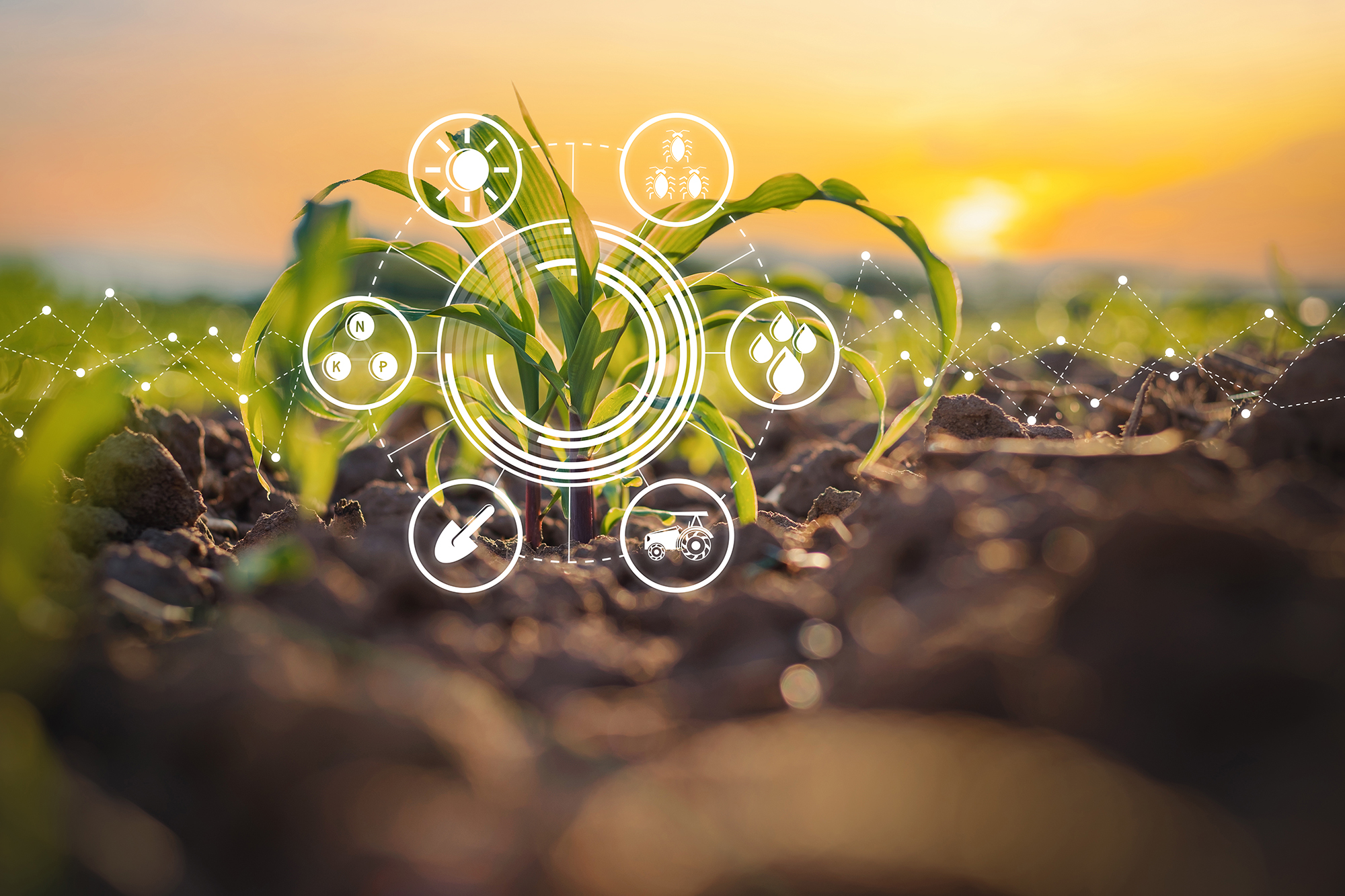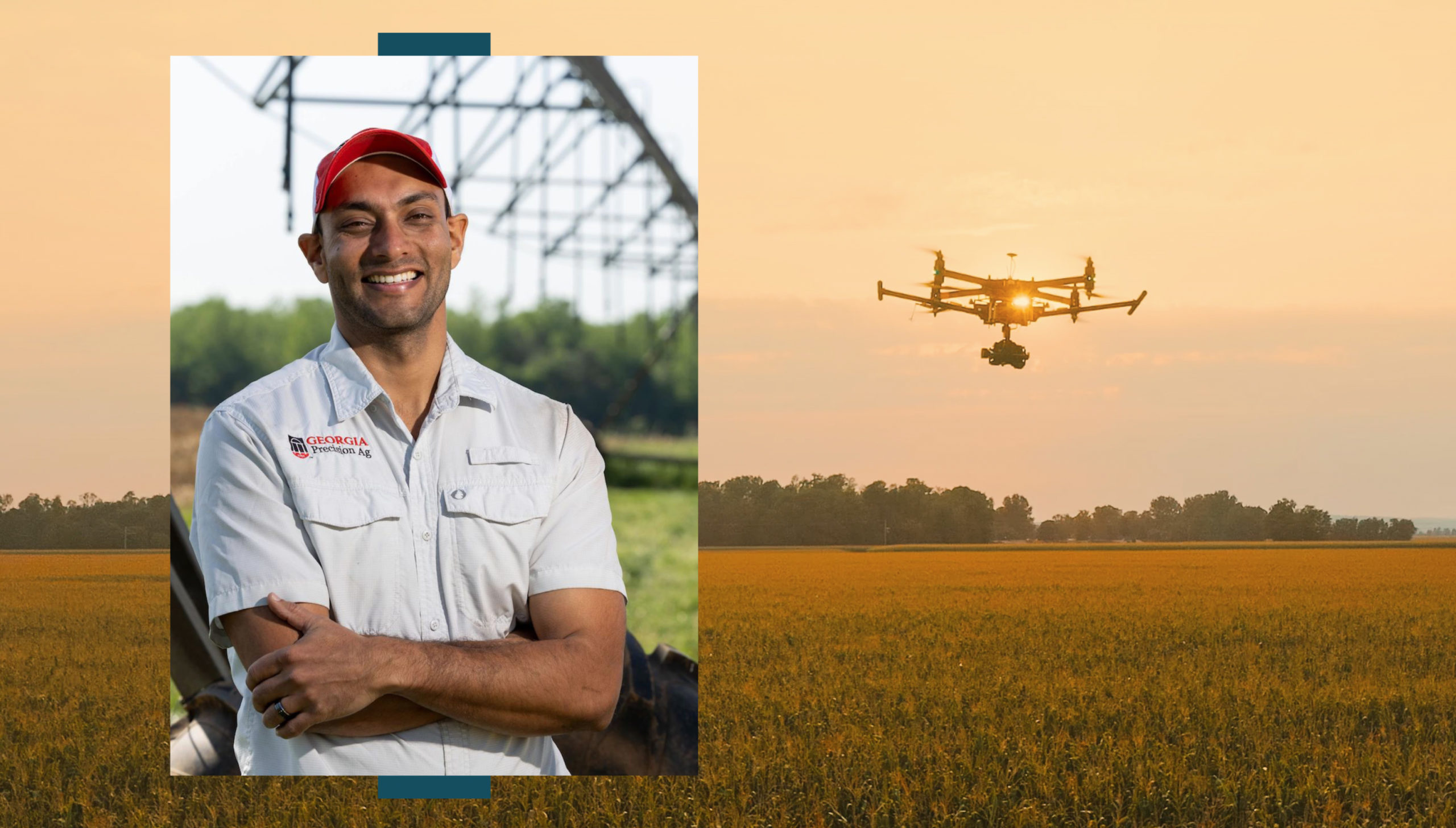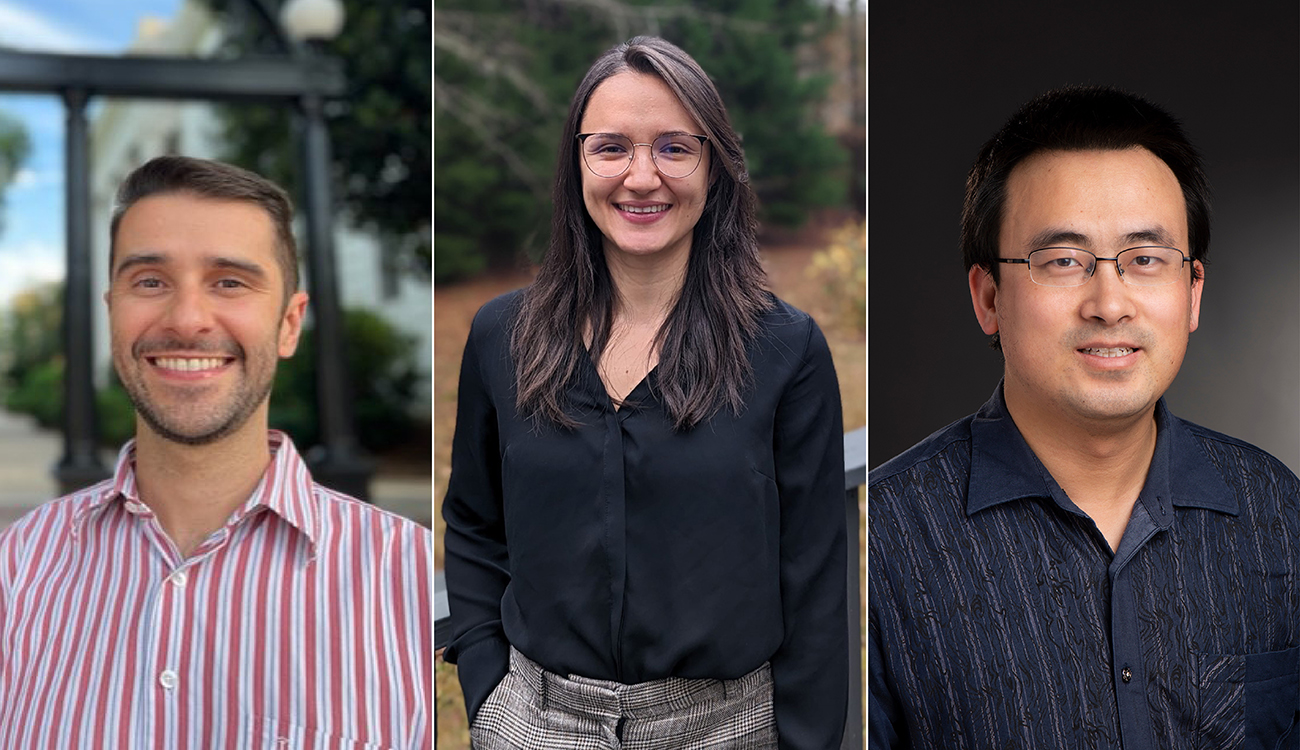IIPA awards first seed grants
By David Mitchell
UGA’s Institute for Integrative Precision Agriculture (IIPA) has awarded eight seed grants to fund initial research for projects at the convergence of agriculture, engineering, computing and other related areas of study.
The grants, the first of their kind from IIPA, an interdisciplinary research unit launched in early 2022, follow a strategic push by the university to improve its industry collaboration across fields of study and support foundational research to advance agriculture and economic development in the state of Georgia. The grants represent a focus within integrative precision agriculture to solve concrete challenges, ranging from lumber yields and food safety to broader issues like sustainability and mental health in the agriculture community.
“We are trying to be leaders in this space, and the biggest challenge is: How do you connect advances in technology with what is happening in the field?” said Jaime Camelio, professor and associate dean for research, innovation and entrepreneurship in the College of Engineering, and one of two interim co-directors of IIPA. “It’s happening in almost any industry, and technology is moving so fast. So, how do you take advantage of that to increase resources and productivity?”
Harald Scherm, also IIPA interim co-director, professor and department head of plant pathology in the College of Agricultural & Environmental Sciences, named four specific goals by which projects were chosen: 1) as with other traditional seed grants, to identify projects that, upon generating initial data, were poised to submit large grant applications; 2) to fund outside-the-box ideas that were not receiving other funding but which could prove rewarding in the future; 3) to build community infrastructure with equipment that could be used across departments; and 4) to build relationships with industry.
Four projects that met these criteria stood out and were fully funded by the seed grant. Another four were partially funded with an emphasis on enabling equipment.
One fully funded project focused on smart forest harvesting operations. As an industry, forestry lags behind others from a technology perspective in the way it addresses issues such as supply chain, Scherm said. Already a challenge and exacerbated during the COVID-19 pandemic, forestry was identified as an area of particular need.
For this project, researchers pose a simple but effective method for improving lumber payload efficiency. Using computer vision and image analysis of payloads, they hope to increase yields, lower costs and improve the overall supply chain, while also keeping an eye toward sustainability.
Another project will attempt to develop sensors that can monitor temperature, humidity and location of food supplies during transportation.
“Feeding the population is more than just producing more,” Scherm said. “There has been an increasing emphasis in the past five to 10 years on preventing losses, and this is a project we felt addressed that challenge.”
The project, he said, combined a signature area like food science with an emerging one like sensor communication in the College of Engineering.
Another project—one that meets the high-risk, high-reward criterion, according to Scherm—aims to develop synthetic microbiomes of arbuscular mycorrhizal fungi (AMF) for plant hosts in biofuel production. AMF’s dynamic nature means it runs the gamut from promoting plant growth to acting as a parasite, depending on the amount of nitrogen and phosphorous in the soil.
By producing synthetic populations of AMF in cutting-edge microfluidic chambers, researchers hope to manipulate this fundamental symbiosis for the production of biofuel. If successful, this work could prove foundational for other similar plants and fungi.
The fourth fully-funded project addresses a less visible area of concern in the agriculture community but one of enormous importance. Farming, in particular, is a stressful occupation, and the stress affects farmers themselves as well as their families and farming-adjacent communities. Community stressors like high poverty or unemployment and personal ones like chronic illness or disability exacerbate these issues. The CDC has captured statistics in this domain with the Social Vulnerability Index, which gives each county a score of how vulnerable it is to effects of negative external events like natural disasters.
Using a big data approach, this project aims to provide real-time mapping of stress risk for agricultural communities in hopes of informing potential interventions. These would address challenges at a personal level while also, in theory, improving farming output.
Each project serves a strategic need for the university – promoting research and thought leadership in interdisciplinary areas of emphasis – as well as addressing, in some cases, an immediate societal need.
Explore a full list of projects, both fully- and partially-funded by IIPA’s seed grants, below:
- Smart Forest Harvesting Operations: Using Artificial Intelligence to Improve Management and Logistics
- Alicia Pedruzzi (PI), Chad Bolding (Co-PI), Joseph Conrad (Co-PI), Guoyu Lu (Co-PI)
- Engineering Synthetic Communities of Arbuscular Mycorrhizal Fungi (AMF) in Sorghum Biocolor for Biofuel Production
- Jonathan Arnold (PI), Leidong Mao (Co-PI), Anny Chung (Co-PI)
- Real-time Stress Risk Mapping for Agricultural Communities: The Precision Agriculture Stress Report (PASS) Initiative
- Wesley Porter (PI), Anna Scheyett (Co-PI), Simerjeet Virk (Co-PI), Barry Croom (Co-PI), Leonardo Bastos (Co-PI)
- A Precision Tracking and Tracing System in Food Supply Chain Through Ubiquitous Wireless Connectivity
- Haijian Sun (PI), Wenzhan Song (Co-PI), Lilong Chai Chai (Co-PI), Abhinav Mishra (Co-PI)
- Enhancing Research and Teaching Capabilities in Integrative Precision Agriculture with a Variable Rate Irrigation-Enabled Center Pivot
- George Vellidis (PI), Wesley Porter, Simerjeet Virk
- Artificial Intelligence-Assisted Harvest to Improve Cotton and Peanut Harvest Efficiency
- Simerjeet Virk (PI), Glen Rains, Wesley Porter, George Vellidis, Guoyu Lu, Haijan Sun, Craig Ganssle, Bennie Branch, Josh Minor
- Optimizing Controlled Environment Agriculture Using Automated Image Acquisition and Analysis
- Marc van Iersel (PI), Mark Haidekker, Rhuanito Ferrarezi, Lynne Seymour
- Development and Evaluation of a Precision Seed Metering System for Uniform Seed Singulation and Emergence
- Wesley Porter (PI), Darian Landolt, Glen Rains, Scott Tubbs, Simerjeet Virk



